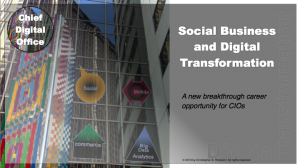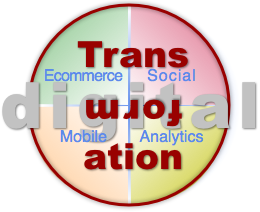 The Potential of Female Leadership explores what lessons we may learn from bonobos’ matriarchal social structure, so we can build stronger, more collaborative human communities and groups. Bonobo Handshake is an enthralling insightful book, which I review here. A tremendous bonus is its similarities to and significant differences from Chimpanzee Politics (reviewed yesterday). The Potential of Female Leadership explores what lessons we may learn from bonobos’ matriarchal social structure, so we can build stronger, more collaborative human communities and groups. Bonobo Handshake is an enthralling insightful book, which I review here. A tremendous bonus is its similarities to and significant differences from Chimpanzee Politics (reviewed yesterday).
Bonobo Handshake was on the same library shelf as Chimpanzee Politics, but it is a very different book, and in delightful ways. At the same time, it offers intriguing insight into bonobos’ behavior, which differs significantly from chimpanzees’ and holds interesting lessons for human societies and groups. Although Woods is not a primatologist per se, she has conducted extensive research with her husband, who is, so explaining scientific experiments forms a key part of this book.
Bonobo Handshake is rare in a surprising way. Deftly and subtly, it contrasts the joy, harmony and matriarchal structure of the bonobos with chimpanzees’ and humans’ patriarchal societies and violence: the wars in and around the two Congos result in the […]
 Use Scenarios to Network into Jobs and Contracts reveals a new way to break through when you’re looking for new consulting work or employment for yourself, or you’re fundraising for your startup or nonprofit. As these pages detail, I’ve learned that “breaking through the noise” is easy when you play music. You’ll learn how to do it here. Use Scenarios to Network into Jobs and Contracts reveals a new way to break through when you’re looking for new consulting work or employment for yourself, or you’re fundraising for your startup or nonprofit. As these pages detail, I’ve learned that “breaking through the noise” is easy when you play music. You’ll learn how to do it here.
[…]
 Why T-Mobile Needs a Chief Customer Officer shows how customers’ omni-channel interactions with enterprises demand profound integration of business processes, and how firms’ failure to “go all the way” in breaking down silos ultimately threatens business. Most firms don’t go far enough, including T-Mobile, and their silo-centric efforts fail to get the job done. To illustrate the point, I’ll share how T-Mobile alienates fans like me by not delivering what they promise. Why T-Mobile Needs a Chief Customer Officer shows how customers’ omni-channel interactions with enterprises demand profound integration of business processes, and how firms’ failure to “go all the way” in breaking down silos ultimately threatens business. Most firms don’t go far enough, including T-Mobile, and their silo-centric efforts fail to get the job done. To illustrate the point, I’ll share how T-Mobile alienates fans like me by not delivering what they promise.
This story also shows that the need for a CCO is particularly acute in mature economies like the U.S.A. and Europe because their silos were built decades ago, and their legacy processes often adversely affect customer experience.
[…]
 In Healing Business, I’ll share why I think business needs healing and how CSRA is doing it with experiential social media. Business is wounded from a human point of view because it’s become very impersonal; large organizations don’t mean to, but they treat employees and customers as numbers because they don’t know or trust them. Experiential is a practical way to change that. In Healing Business, I’ll share why I think business needs healing and how CSRA is doing it with experiential social media. Business is wounded from a human point of view because it’s become very impersonal; large organizations don’t mean to, but they treat employees and customers as numbers because they don’t know or trust them. Experiential is a practical way to change that.
If you’d like to watch this post instead of reading it, click the thumbnail button!
[…]
 [Updated] Many businesses live in fear, and how to break free reveals how fear and risk can be sharply reduced by increasing trust among employees, customers and partners. [Updated] Many businesses live in fear, and how to break free reveals how fear and risk can be sharply reduced by increasing trust among employees, customers and partners.
I have learned many surprising things while practicing experiential social media, but one of the most astounding is the realization that most business practices, especially those that concern people, are grounded in fear and mistrust. This ties businesses in knots, but few people realize it because it’s accepted as normal. This post aims to open your eyes, so you can start noticing how fear and mistrust operate in your firm. Then I’ll offer numerous ideas that can help you to reduce fear and risk by increasing trust.
[…]
Chief Digital Officer Needs Analysis is an executive summary of how CSRA helps organizations assess their need for “going digital” and hiring digital executives. These engagements serve as “requirements analysis” for an enterprise, business or brand.
Improving the Selection Process for Digital Executives
 Astute CEOs and boards of established firms and brands are awakening to an increasingly uncomfortable reality: for many, business results have been flat, and customers are behaving “unpredictably.” Since this is such a prevalent trend, there is emerging consensus that “going digital” is the way to get closer to customers(1) and revitalize business. CEOs or board members get on the phone to their executive recruiter to search for a Chief Digital Officer, a “digital CMO,” or maybe a digital-savvy CIO to lead digital transformation. As we’ll see, in so doing they are too often putting the cart before the horse. They will get better results by assessing their needs for digital expertise first, so I’ll offer a simple yet robust needs assessment process. Astute CEOs and boards of established firms and brands are awakening to an increasingly uncomfortable reality: for many, business results have been flat, and customers are behaving “unpredictably.” Since this is such a prevalent trend, there is emerging consensus that “going digital” is the way to get closer to customers(1) and revitalize business. CEOs or board members get on the phone to their executive recruiter to search for a Chief Digital Officer, a “digital CMO,” or maybe a digital-savvy CIO to lead digital transformation. As we’ll see, in so doing they are too often putting the cart before the horse. They will get better results by assessing their needs for digital expertise first, so I’ll offer a simple yet robust needs assessment process.
Although CSRA’s client work shows accelerating digital […]
 CIO Guide to CDOs and Digital Transformation summarizes a presentation I gave to TechLeaders Association, a Chicago-based CIO group. It will brief you on how digitally empowered B2C and B2B customers are forcing change on enterprises by demanding seamless interactions across digital and analog interfaces, the rise of the Chief Digital Officer and how CIOs can use this disruption to their advantage. Omni-channel will become the new normal in industries in which a leader provides the omni-channel experience and raises the bar. While explaining omni-channel, I asked the room how many had abandoned transactions with ecommerce or mobile sites because they were too difficult to use, and 40% raised their hands. When leaders field their omni-channel experiences, customers will reject laggards en masse. CIOs can use these developments to their advantage, and the CIO Guide to CDOs and Digital Transformation shows how. CIO Guide to CDOs and Digital Transformation summarizes a presentation I gave to TechLeaders Association, a Chicago-based CIO group. It will brief you on how digitally empowered B2C and B2B customers are forcing change on enterprises by demanding seamless interactions across digital and analog interfaces, the rise of the Chief Digital Officer and how CIOs can use this disruption to their advantage. Omni-channel will become the new normal in industries in which a leader provides the omni-channel experience and raises the bar. While explaining omni-channel, I asked the room how many had abandoned transactions with ecommerce or mobile sites because they were too difficult to use, and 40% raised their hands. When leaders field their omni-channel experiences, customers will reject laggards en masse. CIOs can use these developments to their advantage, and the CIO Guide to CDOs and Digital Transformation shows how.
[…]
Digital Transformation’s Personal Issue reveals personal treatment to be the key to breakthrough customer experience, and it shows how digital social spaces enable Chief Digital Officers to use personal treatment to create more profit. Before they arrive, though, they need to lead their organizations through the Personal Issue. 
The Personal Issue refers to a perceived conflict between empowered customers and profit-starved companies. Digital social technologies are enabling customers to “re-personalize” business and society because their online interactions among themselves are personal, which is changing their expectations of all interactions.
However, businesses resist treating customers personally because they fear cost and inefficiency. They don’t understand the digital social economics of treating customers personally online, at scale.
Meanwhile, the missions of chief digital officers (CDOs) and chief customer officers (CCOs) are creating bold new “customer experience” and profits by using digital technologies to transform organizations, brands and businesses. They will fulfill their missions far more quickly and completely by using the key.
[…]
 Chief digital officers and transformation will go hand in hand as the position and its competencies take shape over the next few years. Historically, commercial, government and nonprofit enterprises, when faced with profound business change or technology disruption, respond by elevating new types of leader to the “C” level. Chief Knowledge Officer, Chief Process Officer, Chief Ecommerce Officer and the like become de rigeur for a few years and fade, either because the new disruption proved less sustainable than anticipated or because the competency became subsumed by a more core function. Chief digital officers and transformation will go hand in hand as the position and its competencies take shape over the next few years. Historically, commercial, government and nonprofit enterprises, when faced with profound business change or technology disruption, respond by elevating new types of leader to the “C” level. Chief Knowledge Officer, Chief Process Officer, Chief Ecommerce Officer and the like become de rigeur for a few years and fade, either because the new disruption proved less sustainable than anticipated or because the competency became subsumed by a more core function.
I predict that the Chief Digital Officer (CDO) will play a vital role at most organizations through 2020, but the organizational role will be fleeting as a standalone. “Digital” will integrate all functions and be the standard eventually, but organizations require intense transformation to get there, so the CDO will play a crucial role. My ongoing analysis of social business adoption indicates that the market for social business transformation will hit an inflection point by 2017, as more advisors and executives see the power and results of digital […]
 [UPDATED] Social business strategy use cases represent scenarios in which most organizations find themselves, and they reflect some of the choices of which CDOs, CMOs and CEOs may use as they plan to evolve their enterprises in order to either improve returns or simply remain relevant in volatile markets. [UPDATED] Social business strategy use cases represent scenarios in which most organizations find themselves, and they reflect some of the choices of which CDOs, CMOs and CEOs may use as they plan to evolve their enterprises in order to either improve returns or simply remain relevant in volatile markets.
Social business strategy is inherently transformational to large organizations whether they are in commercial, nonprofit or government sectors. All organizations are hives of people communicating and collaborating to execute business processes (“work”). Digital social technologies have reduced the cost of communication (and therefore much collaboration and work) by an order of magnitude (roughly ten times). Collaboration and innovation, before digital social technologies, were slow and expensive. Now they are very fast and inexpensive—when organizations learn how to use them. Organizations that learn how are more responsive to their constituents and customers, so the market rewards them—and will increasingly punish those that lag too far.
These use cases focus on building enterprise social business internal capability, and they are also helpful to consider when selecting social business advisors. Please […]
|
|
 The Potential of Female Leadership explores what lessons we may learn from bonobos’ matriarchal social structure, so we can build stronger, more collaborative human communities and groups. Bonobo Handshake is an enthralling insightful book, which I review here. A tremendous bonus is its similarities to and significant differences from Chimpanzee Politics (reviewed yesterday).
The Potential of Female Leadership explores what lessons we may learn from bonobos’ matriarchal social structure, so we can build stronger, more collaborative human communities and groups. Bonobo Handshake is an enthralling insightful book, which I review here. A tremendous bonus is its similarities to and significant differences from Chimpanzee Politics (reviewed yesterday).
 Use Scenarios to Network into Jobs and Contracts reveals a new way to break through when you’re looking for new consulting work or employment for yourself, or you’re fundraising for your startup or nonprofit. As these pages detail, I’ve learned that “breaking through the noise” is easy when you play music. You’ll learn how to do it here.
Use Scenarios to Network into Jobs and Contracts reveals a new way to break through when you’re looking for new consulting work or employment for yourself, or you’re fundraising for your startup or nonprofit. As these pages detail, I’ve learned that “breaking through the noise” is easy when you play music. You’ll learn how to do it here. Why T-Mobile Needs a Chief Customer Officer shows how customers’ omni-channel interactions with enterprises demand profound integration of business processes, and how firms’ failure to “go all the way” in breaking down silos ultimately threatens business. Most firms don’t go far enough, including T-Mobile, and their silo-centric efforts fail to get the job done. To illustrate the point, I’ll share how T-Mobile alienates fans like me by not delivering what they promise.
Why T-Mobile Needs a Chief Customer Officer shows how customers’ omni-channel interactions with enterprises demand profound integration of business processes, and how firms’ failure to “go all the way” in breaking down silos ultimately threatens business. Most firms don’t go far enough, including T-Mobile, and their silo-centric efforts fail to get the job done. To illustrate the point, I’ll share how T-Mobile alienates fans like me by not delivering what they promise. In Healing Business, I’ll share why I think business needs healing and how CSRA is doing it with experiential social media. Business is wounded from a human point of view because it’s become very impersonal; large organizations don’t mean to, but they treat employees and customers as numbers because they don’t know or trust them. Experiential is a practical way to change that.
In Healing Business, I’ll share why I think business needs healing and how CSRA is doing it with experiential social media. Business is wounded from a human point of view because it’s become very impersonal; large organizations don’t mean to, but they treat employees and customers as numbers because they don’t know or trust them. Experiential is a practical way to change that. [Updated] Many businesses live in fear, and how to break free reveals how fear and risk can be sharply reduced by increasing trust among employees, customers and partners.
[Updated] Many businesses live in fear, and how to break free reveals how fear and risk can be sharply reduced by increasing trust among employees, customers and partners. Astute CEOs and boards of established firms and brands are awakening to an increasingly uncomfortable reality: for many, business results have been flat, and customers are behaving “unpredictably.” Since this is such a prevalent trend, there is emerging consensus that “going digital” is the way to get closer to customers(1) and revitalize business. CEOs or board members get on the phone to their executive recruiter to search for a Chief Digital Officer, a “digital CMO,” or maybe a digital-savvy CIO to lead digital transformation. As we’ll see, in so doing they are too often putting the cart before the horse. They will get better results by assessing their needs for digital expertise first, so I’ll offer a simple yet robust needs assessment process.
Astute CEOs and boards of established firms and brands are awakening to an increasingly uncomfortable reality: for many, business results have been flat, and customers are behaving “unpredictably.” Since this is such a prevalent trend, there is emerging consensus that “going digital” is the way to get closer to customers(1) and revitalize business. CEOs or board members get on the phone to their executive recruiter to search for a Chief Digital Officer, a “digital CMO,” or maybe a digital-savvy CIO to lead digital transformation. As we’ll see, in so doing they are too often putting the cart before the horse. They will get better results by assessing their needs for digital expertise first, so I’ll offer a simple yet robust needs assessment process. CIO Guide to CDOs and Digital Transformation summarizes a presentation I gave to TechLeaders Association, a Chicago-based CIO group. It will brief you on how digitally empowered B2C and B2B customers are forcing change on enterprises by demanding seamless interactions across digital and analog interfaces, the rise of the Chief Digital Officer and how CIOs can use this disruption to their advantage. Omni-channel will become the new normal in industries in which a leader provides the omni-channel experience and raises the bar. While explaining omni-channel, I asked the room how many had abandoned transactions with ecommerce or mobile sites because they were too difficult to use, and 40% raised their hands. When leaders field their omni-channel experiences, customers will reject laggards en masse. CIOs can use these developments to their advantage, and the CIO Guide to CDOs and Digital Transformation shows how.
CIO Guide to CDOs and Digital Transformation summarizes a presentation I gave to TechLeaders Association, a Chicago-based CIO group. It will brief you on how digitally empowered B2C and B2B customers are forcing change on enterprises by demanding seamless interactions across digital and analog interfaces, the rise of the Chief Digital Officer and how CIOs can use this disruption to their advantage. Omni-channel will become the new normal in industries in which a leader provides the omni-channel experience and raises the bar. While explaining omni-channel, I asked the room how many had abandoned transactions with ecommerce or mobile sites because they were too difficult to use, and 40% raised their hands. When leaders field their omni-channel experiences, customers will reject laggards en masse. CIOs can use these developments to their advantage, and the CIO Guide to CDOs and Digital Transformation shows how.
 Chief digital officers and transformation will go hand in hand as the position and its competencies take shape over the next few years. Historically, commercial, government and nonprofit enterprises, when faced with profound business change or technology disruption, respond by elevating new types of leader to the “C” level. Chief Knowledge Officer, Chief Process Officer, Chief Ecommerce Officer and the like become de rigeur for a few years and fade, either because the new disruption proved less sustainable than anticipated or because the competency became subsumed by a more core function.
Chief digital officers and transformation will go hand in hand as the position and its competencies take shape over the next few years. Historically, commercial, government and nonprofit enterprises, when faced with profound business change or technology disruption, respond by elevating new types of leader to the “C” level. Chief Knowledge Officer, Chief Process Officer, Chief Ecommerce Officer and the like become de rigeur for a few years and fade, either because the new disruption proved less sustainable than anticipated or because the competency became subsumed by a more core function. [UPDATED] Social business strategy use cases represent scenarios in which most organizations find themselves, and they reflect some of the choices of which CDOs, CMOs and CEOs may use as they plan to evolve their enterprises in order to either improve returns or simply remain relevant in volatile markets.
[UPDATED] Social business strategy use cases represent scenarios in which most organizations find themselves, and they reflect some of the choices of which CDOs, CMOs and CEOs may use as they plan to evolve their enterprises in order to either improve returns or simply remain relevant in volatile markets.